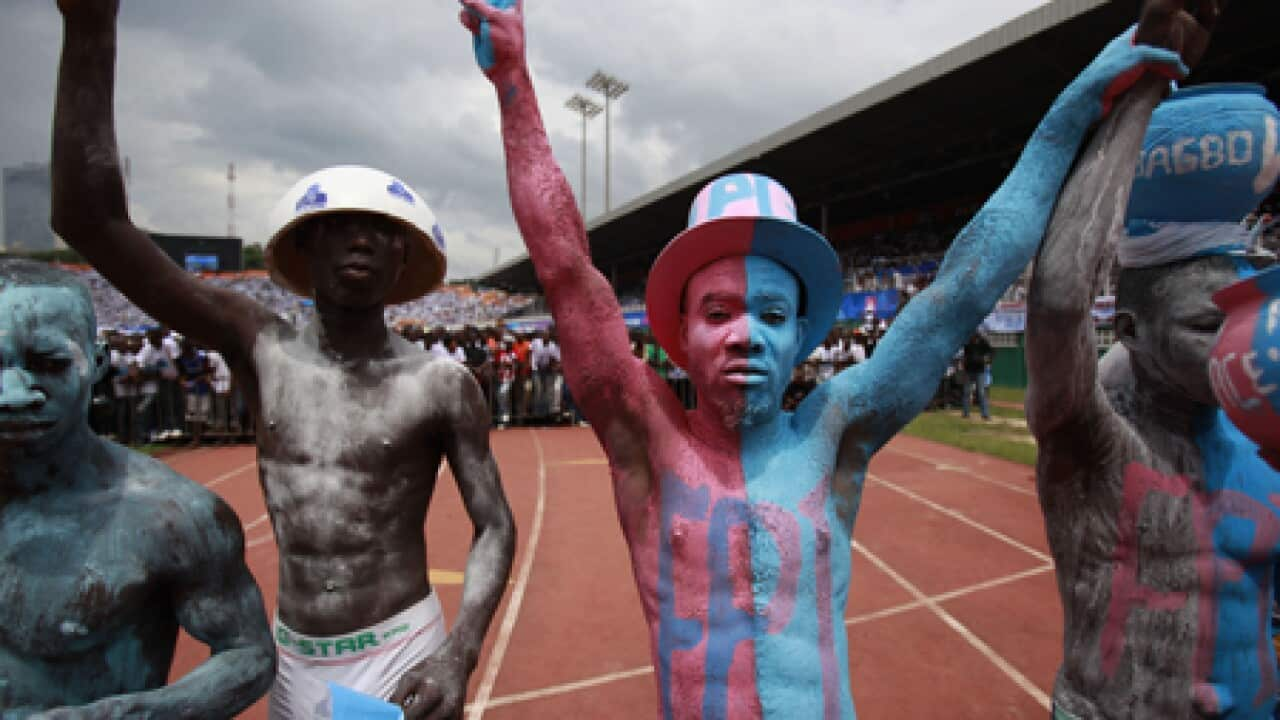Like many Ivorians, Doba rose before dawn to line up to vote even before the polling station in Yopougon, a district of Abidjan, had opened.
"I voted for peace," said the mother-of-six.
Doba cast her vote for Laurent Gbagbo, the incumbent facing the electorate for the first time since 2000 after repeatedly extending his mandate after the expiry of his term five years ago.
The vote is principally a contest between three political heavyweights: Gbagbo, former prime minister Alassane Dramane Ouattara, and former president Henri Konan Bedie.
In Abidjan, the country's economic capital which is home to a third of the 5.7 million registered voters, people queued patiently and calmly for polling stations to open under the watchful gaze of security forces.
"I'm happy because we're going to have peace, our children are going to have work," said Monique Kanga, allowed to go to the head of the queue because of her age when she voted in the Koumassi district.
With his cap on his head, IT worker Jules Ahore proudly threw his ballot into the box at a polling station decked out in the country's orange, white and green national colours in the upmarket Cocody neighbourhood.
"I feel free, it's like I am at church and I have come to take communion," he said.
In the central city of Bouake, a stronghold of former rebel forces, streets were almost deserted and shops shut, with voters travelling to schools to cast their ballots at appointed times.
"Now we are free, I think Ivory Coast will rediscover itself," said Azita Bamba, a shopkeeper who came to a polling station with her six children.
Lassina Toure, a 35-year-old driver, said the election marked a turning point for Dioula people, mainly Muslim residents in northern areas of the country who claim to have suffered stigmatisation and discrimination since the outbreak of civil war in 2002.
"Before, when you said you were called Toure, Kone or Bamba, they said you weren't Ivorian," he said.
"But in performing my civic duty today, I have rediscovered my citizenship."
Share

